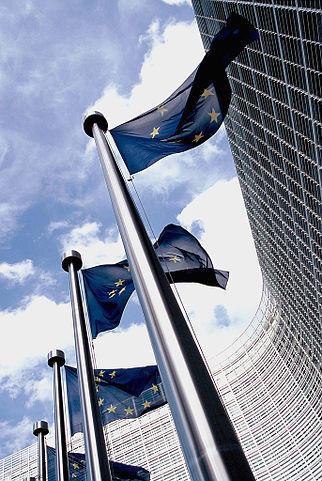
On June 23rd, voters in the UK get a say on whether to remain in the European Union (EU). The UK first joined what was then called the European Economic Community (EEC) back in 1973, and in a 1975 vote, 67% voted to stay in the EEC. The issue was fairly settled until Conservative Prime Minister David Cameron, under pressure from the right wing of his party and anti EU sentiment, promised an in/out referendum in the Party’s manifesto for last year’s General election. The stakes here are high, and no one really knows what the result of a ‘Brexit’ (a neologism for British Exit) would be.
In recent polls, opinion seems fairly evenly divided, with roughly 40% each for staying and going. While a crucial 20% remain undecided, momentum seems to be with the ‘out’ side. Sentiment towards the EU cuts across party lines in the UK. Broadly speaking, the political establishment want to remain, though significant numbers of supporters, especially in the Tory Party, wish to go. While initially hostile to the EEC, many on the left and in the trade union movement have come to embrace Europe because of its promotion of progressive labour law and working conditions directives, even though the UK has opted out of many of these.
But what about the question of class in all of this? In many ways, class is a central factor, though it is rarely mentioned in debate or in the mainstream media. The UK Independence Party (UKIP), which has been a threat to both Conservative and Labour parties, has made immigration central to its campaigns. UKIP draws much of its support from the working-class, especially those who feel marginalised by the political mainstream, and one of the biggest reasons for this is immigration. According to a recent survey, 55% of voters see immigration as the most important issue in the upcoming referendum. Of course, the issue is being mixed up with the ongoing refugee crisis and the desire of many non-EU economic migrants to come to Britain. This is a difficult and touchy subject for all political parties and for understandable reasons. But immigration was an issue even before refugees began streaming in from the Middle East, because one of the main planks of the EU is the free movement of goods and labour. Any citizen of the EU can choose to live and work in any other member state, and millions of people have chosen to do just that. Migration within the EU, which was seriously underestimated by the previous Labour government, has had very different outcomes in different labour markets. Many eastern and southern Europeans have been attracted to Britain by the promise of relatively high wages, job vacancies, and the fact that English is widely spoken across the continent.
The biggest losers in this migration process have been the indigenous UK working class, who now have to compete with millions of semi-skilled and unskilled workers from across the EU. While there is plenty of anecdotal evidence that UK workers are being discriminated against by recruitment agencies, the best evidence of this practice comes from a high profile case in the English midlands where local people have been effectively excluded from the 3,000 jobs created at a distribution warehouse owned by sports clothing retailing firm Sports Direct. The company apparently preferred to recruit directly from Poland. For working-class voters, the EU’s free market in labour appears to be more about big corporate profits than worker mobility.
Immigration has an impact beyond access to employment. It also affects housing, schooling, and a host of other public services. All of these factors raise questions about the long term stability and sustainability of working-class communities. In many areas in the UK, from big cities to smaller towns, working-class people bear the brunt of all of these issues, and this has turned many towards UKIP and away from Labour as their natural home. Brexit begins to look attractive for those most marginalised by the effects of the free market, who also benefit least from the more positive aspects of EU membership. This situation has been confounded for many by the ways in which, after the recession of 2007/8, the EU has liberalised its markets and toned down its hitherto strong commitment to social legislation. Most notably, this has seen the EU in secret negotiations with the US over The Transatlantic Trade and Investment Partnership or TTIP.
Nothing about the EU referendum is clear or straightforward. Whatever the result of the ballot, the motivations of voters in terms of class may not be clear. The EU had and still has the potential to improve the lives of millions of working-class citizens across Europe, but too often the interests of big business and social elites trump those of ordinary people.
This piece first appeared in Working-Class Perspectives.
Tim Strangleman, University of Kent
Photo by Xavier Häpe - http://www.flickr.com/photos/vier/192493917/, CC BY 2.0












